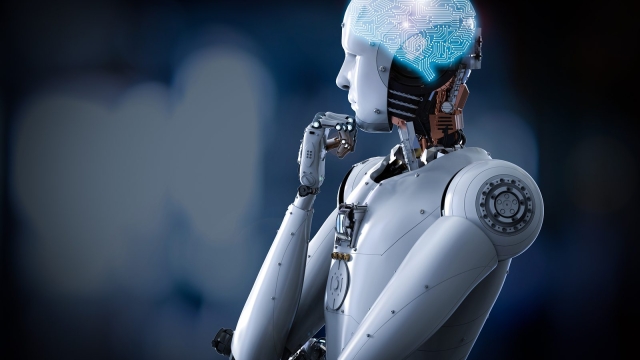
As we stand on the brink of a new era, the world is rapidly evolving with groundbreaking advancements in artificial intelligence. AI, once confined to the realms of science fiction, is now a formidable reality shaping the very fabric of our technological landscape. The dawn of AI brings with it a wave of possibilities and challenges that demand our attention and understanding. From autonomous vehicles to personalized recommendations and intelligent robots, the impact of AI is pervasive and transformative, promising to revolutionize the way we live, work, and interact with the world around us.
Artificial Intelligence Search Engine
Current Applications of AI
In today’s world, artificial intelligence is revolutionizing various industries. One of the key applications of AI is in healthcare, where it is being used to enhance medical imaging analysis, disease detection, and personalized treatment recommendations.
Another significant area where AI is making waves is in finance. Financial institutions are leveraging AI algorithms for fraud detection, risk assessment, and trading optimization. The use of AI in finance has led to increased efficiency and accuracy in decision-making processes.
Moreover, AI is increasingly being integrated into customer service systems. Chatbots powered by AI technology can provide instant and personalized assistance to users, improving the overall customer experience. These applications of AI demonstrate the transformative power of this technology in shaping the future of various sectors.
Ethical Considerations in AI Development
When delving into the realm of artificial intelligence, ethical considerations stand at the forefront of discussions surrounding its development. One key issue revolves around data privacy and security, taking into account how personal information is collected, stored, and utilized by AI systems.
Another critical aspect that demands attention is algorithm bias. AI algorithms are designed by humans, and as such, they are susceptible to reflecting the biases and prejudices inherent in the data they are trained on. This raises concerns about the potential perpetuation of societal inequalities through AI technologies.
Moreover, the implications of AI on the workforce and employment landscape are profound. As automation and AI systems continue to advance, questions arise about the displacement of human workers, redefining traditional job roles, and the need for upskilling and reskilling initiatives to adapt to the evolving technological landscape.
3. Future Implications of AI Technology
AI technology is poised to revolutionize numerous industries, from healthcare to finance. The potential for increased efficiency and accuracy in tasks is vast with the integration of artificial intelligence systems.
As AI continues to advance, ethical considerations surrounding data privacy and security are becoming increasingly important. It will be crucial for companies and policymakers to navigate these complex challenges and ensure that AI technology is used responsibly and ethically.
In the coming years, we can expect to see AI playing a more significant role in society, shaping how we work, communicate, and even make decisions. Embracing these changes while addressing potential risks will be key to unlocking the full potential of artificial intelligence for the benefit of humanity.
















